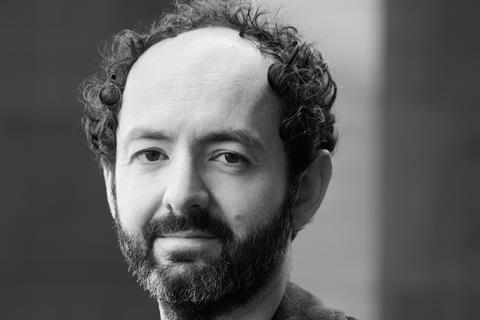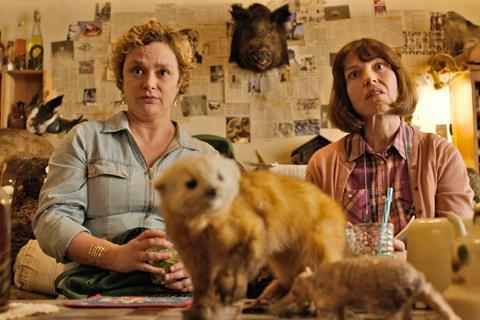
Julien Rejl, artistic director of Cannes Directors’ Fortnight, said the selection committee had focused this year on finding films “from filmmakers often underrepresented, whether that is female directors or certain territories”.
“We work hard to give the Directors’ Fortnight its own unique identity,” Rejl explained. “There are more and more films in the official selection, so it’s important that ours stand out.
“The selection should reflect the current state of production,” he added, including “films that spark debate among our selection committee. They are important because they do divide.”
Among a plethora of what Rejl calls “apocalyptic films reflecting the heaviness of the world,” he said the selection committee “wanted to show that there are filmmakers who can tackle these more serious issues with comedy, fantasy, and imagination to talk about world of today in a lighter tone”.
Directors’ Fortnight will open with French director Sophie Fillières posthumous seventh and final feature This Life Of Mine which Rajl calls “very poetic” and an emotionally-charged film “that will make people laugh, feel and cry, so the best way to start the selection”.

Directors’ Fortnight will close with another French title, Jean-Christophe Meurisse’s Plastic Guns, about a man arrested during a trip to Denmark when he is suspected by local police of being a wanted murderer accused of killing his wife and three children.
“We wanted to close with something totally wacky that would make everyone laugh and leave the festival on lighter, more joyous tone,” Rejl said.
Americas
US films are well-represented with four titles including India Donaldson’s Sundance breakout hit Good One, Ryan J. Sloan’s self-funded first film Gazer, Tyler Taormina’s Christmas Eve In Miller’s Point and Carson Lund’s Eephus. The latter two titles are both produced by Los Angeles-based indie collective Omnes Films.
“Both films are about community and are reinventing the ensemble film à la Robert Altman,” said Rejl. “We thought they were very representative of this new, exciting form of young, independent American cinema.”
The collective concept, he says, is in line with the rebranded Directors’ Fortnight’s spirit of a group effort in choosing the films. Parent organisation the SRF (Société de Réalisatrices et Réalisateurs de Films) is France’s directors’ guild and is designed to foster communal creativity and defend artistic freedom.
“The filmmakers we selected are reviving forms, telling new stories,” said Rejl.
Of the self-funded Gazer, Rejl said director Sloan had sent a letter of intention explaining how he shot the film over one weekend and financed it himself. “It is as great as any bigger budget thriller from Hollywood,” Rejl suggested, “inspired by De Palma, Coppola or Cronenberg”.
Latin America is also well represented in the Fortnight by Hernan Rosselli’s Argentinian crime family tale Something Old, Something New, Something Borrowed, Eryk Rocha and Gabriela Carneiro da Cunha’s Brazilian documentary The Falling Sky, and Cristóbal León and Joaquín Cociña’s Chilean film The Hyperboreans.
“The region that most surprised us this year was Latin America,” Rejl said. “We received extraordinary films with really daring, original proposals.”
He described The Falling Sky an intimate portrait of the rituals of indigenous peoples as “the strongest among the documentaries we screened”. It is also a “cry of rage” against modern world threats.
The Hyperboreans, blending stop-motion, puppets and science fiction, is “the oddball of the selection”, said Rejl. “It is pure fun and will surprise Cannes audiences.”
He described Paulo Carneiro’s Portuguese docu-drama Savanna And The Mountain as “a blend of a Western, a musical, and a very joyous almost comic tone”.
“It was a favourite of ours right away blending lightness with a film about resistance.”
Hala Elkoussy’s Egyptian East Of Noon is “ like nothing we’ve seen from Africa or the Arab world”, according to Rejl. He described it as “an allegory about Egypt that is almost science fiction and paints a portrait of women in Egypt today”.
Karan Kandhari’s Indian film Sister Midnight blends fantasy, comedy and revenge movie tropes to tell the story of women in modern India to the tune of a “rock and roll pop soundtrack.”
“We don’t want radical films or films that are chic or snobby,” said Rejl of the 2024 selection. “We’re trying to strike a balance between singularity and audience appeal.”

























No comments yet